Foley, Baron, Metzger & Juip, PLLC is pleased to announce that Clyde Metzger, a Founding Member of the firm and current Firm Manager, has been named one of 15 “Go To Lawyers” for medical malpractice law by Michigan Lawyers Weekly.
Now in its second year, the “Go To Lawyers” program recognizes leading lawyers in particular fields of law in Michigan. Metzger, along with other honorees, will be featured in a special section that will appear in Michigan Lawyers Weekly in October.
Metzger’s practice focuses on the representation of clients in complex litigation, class actions, business litigation, and product liability claims. In addition, he has served as counsel in physician staff privilege claims, medical malpractice actions for hospitals and physicians, managed care litigation, pharmacy benefit manager litigation, and insurance coverage disputes. He also has experience in commercial litigation, general liability claims, corporate healthcare claims, and civil rights, 42 USC 1983 defense litigation focusing on health care in county jails and state prisons. He has conducted numerous trials in both state and federal courts.
September 2021
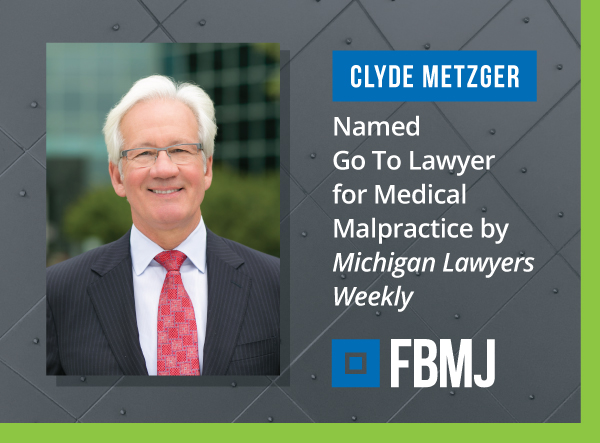
Clyde Metzger Recognized as “Go To Lawyer” for Medical Malpractice by Michigan Lawyers Weekly
Foley, Baron, Metzger & Juip, PLLC is pleased to announce that Clyde Metzger, a Founding Member of the firm and current Firm Manager, has been named one of 15 “Go To Lawyers” for medical malpractice law by Michigan Lawyers Weekly. Now in its second year, the “Go To Lawyers” program recognizes
September 2021
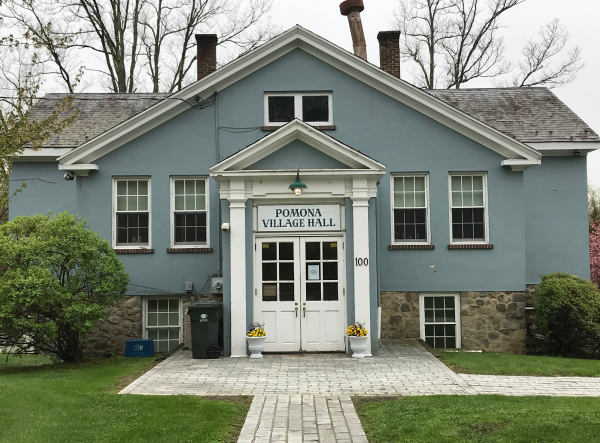
Local Government Forced to Issue Bonds to Pay RLUIPA Legal Fees
A New York case is the latest example of why local governments should proceed carefully in RLUIPA litigation to avoid costly outcomes. In the case of the Village of Pomona, NY (Pomona), a RLUIPA case that has dragged on for more than a decade – bouncing from the district court
September 2021

FBMJ Attorney Joseph McGill Elected Secretary of the SBM
We are pleased to announce that Joseph McGill, a principal with the firm, was recently elected and sworn in as the Secretary of the State Bar of Michigan for the 2021-2022 bar year. McGill was sworn in by Chief Justice Bridget Mary McCormack of the Michigan Supreme Court during a virtual inauguration ceremony broadcast
September 2021

FBMJ Lawyers Named to Michigan Super Lawyers and Rising Stars Lists in 2021
Foley, Baron, Metzger & Juip, PLLC is pleased to announce that eight of its lawyers have been named by Super Lawyers magazine to the 2021 Michigan Super Lawyers and Michigan Rising Stars lists. One lawyer, Randy Juip, was also honored as one of the Top 100 Lawyers in Michigan. Super Lawyers,
September 2021

Credentialing Case Closed: COA Rules Ambulatory Surgical Center Credentialing File Privileged
Is an ambulatory outpatient surgical center’s credentialing file discoverable and admissible at trial? No and no, according to the Michigan Court of Appeals’ published decision in Dorsey v. Surgical Institute of Michigan, where the Court extended the statutory protection for credentialing files beyond hospitals to also include ambulatory surgical centers. The
August 2021
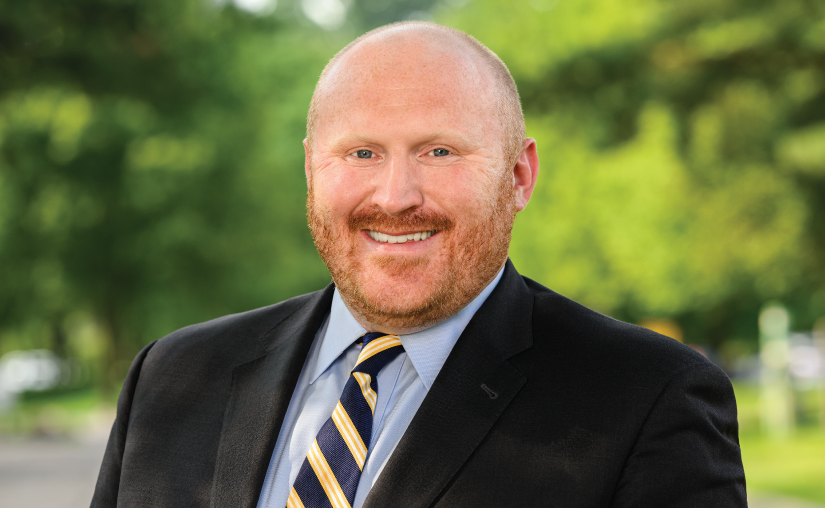
Attorney Matthew McCann Joins Foley, Baron, Metzger & Juip as Associate Principal
Foley, Baron, Metzger & Juip, PLLC is pleased to announce the hiring of attorney Matthew (Matt) McCann as an Associate Principal with the firm effective July 28. Member Richard Baron made the announcement. Matt brings a wealth of experience to the firm, and has a diverse legal background including experience leading
July 2021

Silvia Mansoor Joins Foley, Baron, Metzger & Juip as an Associate Attorney
Foley, Baron, Metzger & Juip, PLLC is pleased to announce the hiring of Silvia Alexandria Mansoor as an Associate attorney, effective July 12, 2021. Randall Juip, Member, made the announcement. Silvia’s work will focus on defending health care professionals and organizations in complex medical malpractice claims and business dispute claims. Silvia is
July 2021
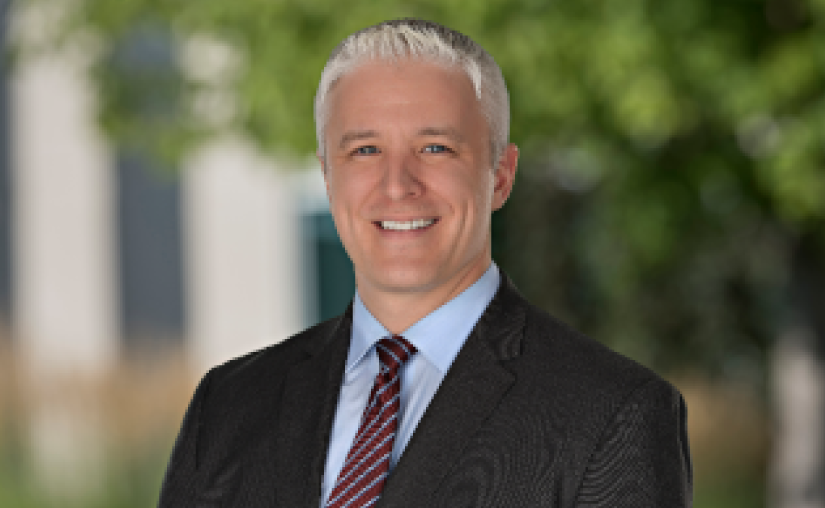
Attorney Nicholas Tatro Promoted to Associate Principal
Foley, Baron, Metzger & Juip, PLLC (FBMJ) is pleased to announce the promotion of attorney Nicholas Tatro from Senior Associate to Associate Principal, effective July 1, 2021. Richard Baron, Member, made the announcement. Tatro’s practice focuses on environmental, toxic tort, mass tort and products liability litigation, permitting and compliance with environmental
July 2021
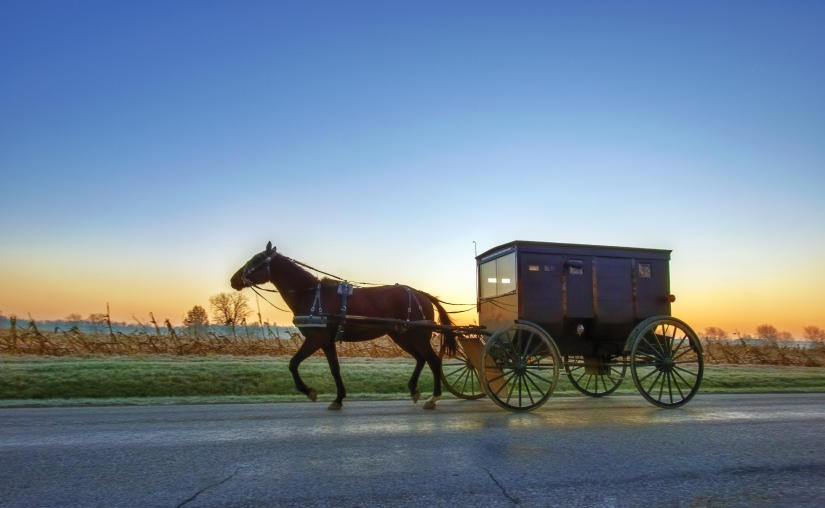
SCOTUS Sides with Amish Community on RLUIPA Land Use Claim
The Supreme Court of the United States (SCOTUS) has finally reached the merits of a RLUIPA land use matter – sort of. To the extent the court touched on the RLUIPA questions in Mast v. Fillmore County on July 2nd, the overarching message from at least one justice was clear:
June 2021

Amish Community Waiting to See if SCOTUS Will Review RLUIPA Claim
It appears as though another term of the Supreme Court will close without the high court evaluating a religious land use claim under The Religious Land Use and Institutionalized Persons Act (RLUIPA). An Amish community from Minnesota had asked the U.S. Supreme Court to consider whether state laws requiring the

